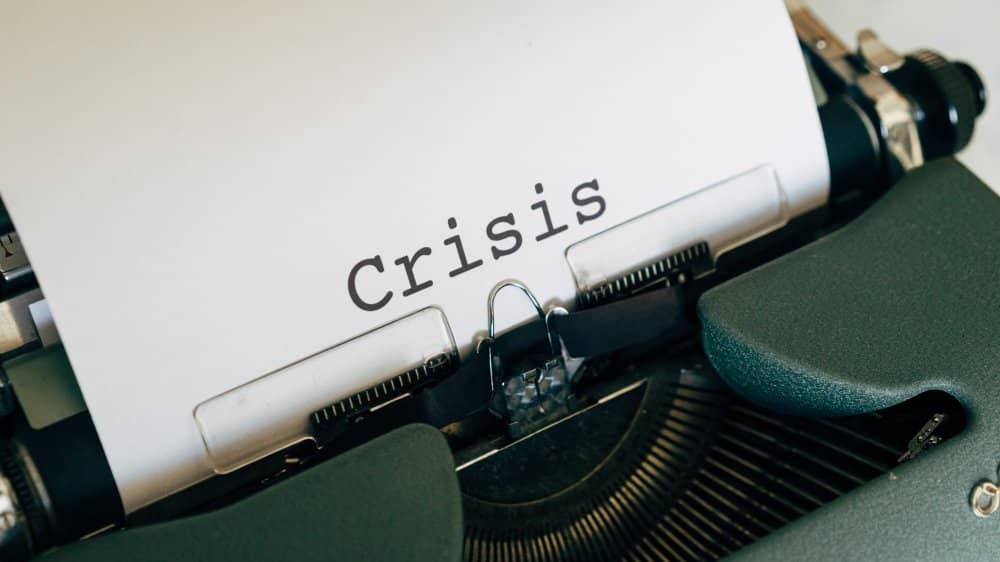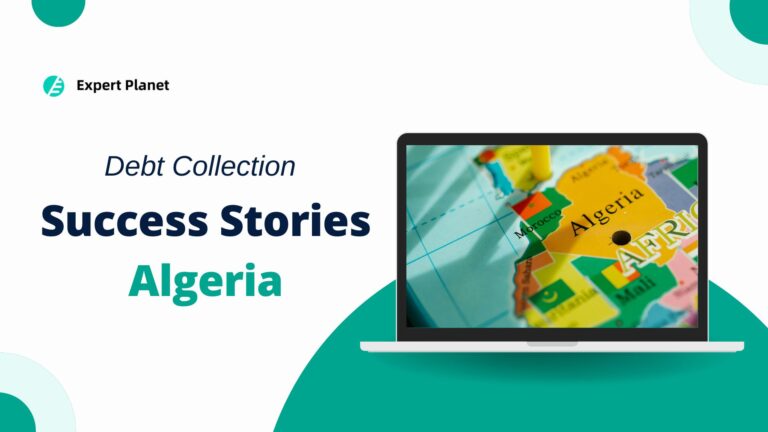International Debt Collection: Understanding the Process and How It Works
In today’s interconnected global economy, businesses often find themselves facing the challenge of international debt collection. When companies extend credit to customers or partners in foreign countries, there is always a risk of non-payment or delayed payment. International debt collection refers to the process of recovering unpaid debts from individuals or businesses located in different countries.
It plays a crucial role in maintaining the financial stability and sustainability of businesses operating in the global market. When international debtors fail to meet their payment obligations, it can severely impact a company’s cash flow, profitability, and overall operations. Therefore, understanding the intricacies of international debt collection is vital for businesses engaged in cross-border transactions.
Understanding International Debt Collection
The Need for International Debt Collection
When businesses engage in international trade or provide services to overseas clients, they often encounter situations where the payment terms are not met. The reasons for non-payment can vary, ranging from the financial difficulties of the debtor to disputes over the quality of goods or services rendered. Regardless of the reasons, the creditor needs an effective mechanism to pursue the debt and recover the outstanding amount.
The Complexities of International Debt Collection
International debt collection presents unique challenges due to jurisdictional differences, language barriers, cultural nuances, and varying legal systems. These complexities make it crucial for businesses to seek professional assistance from experienced international debt collection agencies or law firms specializing in cross-border debt recovery.

Types of International Debt Collection
Commercial Debt Collection
Commercial debt collection involves the recovery of unpaid debts owed by businesses to other businesses. It typically includes outstanding payments for goods delivered, services rendered, or contractual agreements between companies. International commercial debt collection often involves complex legal frameworks, varying payment terms, and jurisdictional challenges.
Consumer Debt Collection
Consumer debt collection focuses on recovering debts from individuals or consumers residing in different countries. These debts usually arise from unpaid credit card bills, personal loans, or other forms of consumer credit. Consumer debt collection requires compliance with local consumer protection laws and regulations and often involves dealing with individual debtors rather than businesses.
The Process of International Debt Collection

1. Assessment and Validation
The first step in international debt collection is assessing the validity of the debt. This involves gathering all relevant documentation, such as invoices, contracts, and communication records, to verify the existence and amount of the debt. Thorough documentation is essential for establishing a strong case during the collection process.
2. Communication and Negotiation
Once the debt’s validity has been ascertained, the subsequent phase involves establishing contact with the debtor. Communication can assume diverse forms, such as letters, emails, or phone calls. It is vital to adopt a tactful and professional approach during these interactions to foster a positive rapport with the debtor and enhance the prospects of successful debt recovery.
Negotiation plays a pivotal role in international debt collection, entailing discussions pertaining to repayment alternatives, devising payment plans, or exploring mutually beneficial solutions. Skilled debt collectors employ effective negotiation techniques to attain mutually acceptable agreements.
3. Legal Action
If communication and negotiation fail to yield the desired outcome, the next course of action in international debt collection may involve pursuing legal remedies. This step requires an understanding of the legal framework in both the debtor’s country and the creditor’s jurisdiction. It often involves engaging local legal professionals who specialize in international debt recovery.
4. Enforcement
Once a legal judgment has been obtained, the debt collection agency or the creditor may proceed with enforcing the court’s decision. The enforcement process varies from country to country and can involve asset seizure, wage garnishment, or other measures available under the applicable laws.
Challenges in International Debt Collection

Recovering international debts can present several challenges due to the diverse nature of cross-border transactions. Some of the key challenges include:
Legal and Regulatory Differences
Each country has its own set of laws and regulations governing debt collection practices. Understanding and complying with these legal frameworks is crucial for pursuing international debt collection. Differences in legal systems, contract enforceability, and collection procedures can significantly impact the success of debt recovery efforts.
Language and Cultural Barriers
Language barriers can hinder effective communication between creditors and debtors. Misunderstandings or misinterpretations of terms and conditions can arise, making it difficult to resolve disputes or negotiate payment arrangements. Cultural differences may also affect debtors’ attitudes towards debt repayment, as some cultures prioritize different financial obligations.
Distance and Time Zone Constraints
International debt collection often involves dealing with debtors located in different time zones, which can lead to communication delays and scheduling difficulties. The distance can also make it challenging to conduct face-to-face meetings or verify debtor information effectively. These logistical constraints can prolong the debt collection process.
Lack of Familiarity with Local Practices
Each country may have unique debt collection practices and customs. Creditors unfamiliar with these practices may find it challenging to navigate local legal systems, negotiate effectively, or select appropriate debt collection strategies. A lack of knowledge about local customs and business etiquette can hinder successful debt recovery.
Working with International Debt Collection Agencies
Engaging the services of a reputable international debt collection agency can significantly streamline the debt recovery process. Here are some considerations when selecting an agency:
Choosing the Right Agency
Evaluate the agency’s reputation, track record, and expertise in international debt collection. Look for agencies with experience in the debtor’s country or region to ensure familiarity with local laws, customs, and collection practices.
Agency’s Expertise and Experience
Verify that the agency specializes in the type of debt collection relevant to your business, such as commercial or consumer debt collection. An agency with expertise in your specific industry or market can better understand your unique challenges and tailor their strategies accordingly.
Understanding the Fee Structure
Before engaging an agency, clarify its fee structure and payment terms. Understand whether they charge a contingency fee based on the amount recovered or if there are any upfront costs or retainer fees. Transparency in financial matters is crucial to avoid any surprises or misunderstandings.
Communication and Reporting
Effective communication is essential throughout the debt collection process. Ensure that the agency provides regular updates on the progress of the case and promptly responds to your queries. Clear communication channels and a dedicated point of contact can facilitate smoother collaboration.
Tips for Effective International Debt Collection

To improve your chances of successful international debt collection, consider the following tips:
Thoroughly Screen Potential Debtors
Before extending credit to international customers, conduct thorough background checks and credit assessments. Evaluate their financial stability, payment history, and reputation. Taking proactive measures can help minimize the risk of future non-payment issues.
Document and Maintain Records
Maintain accurate and detailed records of all transactions, agreements, and communication related to the debt. These records serve as valuable evidence in case of disputes or legal actions. Organized documentation streamlines the debt collection process and strengthens your position as a creditor.
Act Promptly and Persistently
Don’t delay taking action when a debt becomes overdue. Initiate the collection process promptly, following the outlined steps. Be persistent in your efforts, following up on payment requests and maintaining consistent communication with the debtor. Persistence demonstrates your commitment to resolving the issue and may encourage the debtor to take the matter seriously.
Seek Legal Assistance When Needed
Navigating international debt collection can be complex, particularly when legal issues arise. If negotiations fail or the debt remains unpaid despite your efforts, seek legal assistance from professionals experienced in international debt collection. They can provide guidance on the appropriate legal actions to take and represent your interests effectively.
Cultivate Relationships with Local Partners
Establishing relationships with local partners, such as lawyers, collection agencies, or consultants, can be invaluable when operating in foreign markets. Local expertise and connections can provide valuable insights into debt collection practices, legal requirements, and cultural nuances. Collaborating with trusted local partners can enhance your chances of successful debt recovery.
Common FAQ for International Debt Collection
What’s the probability of initiating legal action against the debtor?
Collection experts on Expert Planet mainly conduct collection through an amicable method. If amicable collection fails, the expert will analyze the case to determine whether or not legal action would be worthwhile, then submits a report to the creditor. The creditor evaluates the analysis and determines whether or not they’d like to pursue legal action. If they decide to pursue legal action, the creditor pays the legal fees and the collection professional then takes the debtor to court on behalf of the creditor.
What happens if the debtor refuses to pay even after legal action?
If the debtor refuses to pay even after legal action, the collection agency or legal representative may explore alternative enforcement measures, such as seizing assets or garnishing wages. However, the outcome can depend on the specific circumstances and the debtor’s financial situation.
How long does it take for a collection expert to recover a debt on Expert Planet?
The time it takes to collect a debt depends on the debt amount and the debt age. The bigger the debt amount and the longer the debt age is, the more complicated it is for the expert to handle the case. The fastest recovery on Expert Planet is within two weeks, and the oldest debt our experts have successfully recovered is over three years. Collection experts on Expert Planet work on a “No Win, No Fee” basis, which means they only charge a commission based on the amount that has been successfully recovered. If collection fails, users don’t need to pay any service fee. So no matter what the amount and the debt age are, we suggest you give it a shot. With the help of our experts, you may turn a bad debt into cash flow in only a few weeks.
How do I choose the right debt collection specialist?
As a creditor, collecting debt from debtors who are in distant countries can be incredibly challenging. You sent tons of emails to the debtor but received no reply; you called the debtor thousands of times but never got through. If all your own collection efforts failed, it is absolutely essential to find a local collection expert in the country where the debtor resides. They are able to exert more pressure on the debtor than you who are trying to push the debtor from the other hemisphere of the earth. Besides the expert’s location, you can also pay attention to the debt collection expert’s company profile, reviews, experience, honors, and other information, etc. Collection experts on Expert Planet work on a “No Win, No Fee” basis. If you are not sure which expert to choose, you can talk with them first through the Expert Planet messaging system, and then select the most suitable one to sign the collection contract with.
How can I prevent international debt collection issues in the future?
To prevent international debt collection issues, conduct thorough due diligence before extending credit, maintain clear communication with customers, and enforce strict credit policies. Regularly monitor customer payment behavior and take timely action when issues arise to mitigate potential collection challenges.
Conclusion
International debt collection is a multifaceted process that requires a comprehensive understanding of legal, cultural, and logistical factors. By familiarizing yourself with the process and challenges involved, you can navigate the complexities more effectively. Remember to conduct thorough research, follow a structured debt collection process, and leverage the expertise of professionals when needed.
By adopting proactive strategies and maintaining persistence, businesses can increase their chances of recovering international debts and maintaining a healthy financial position.






